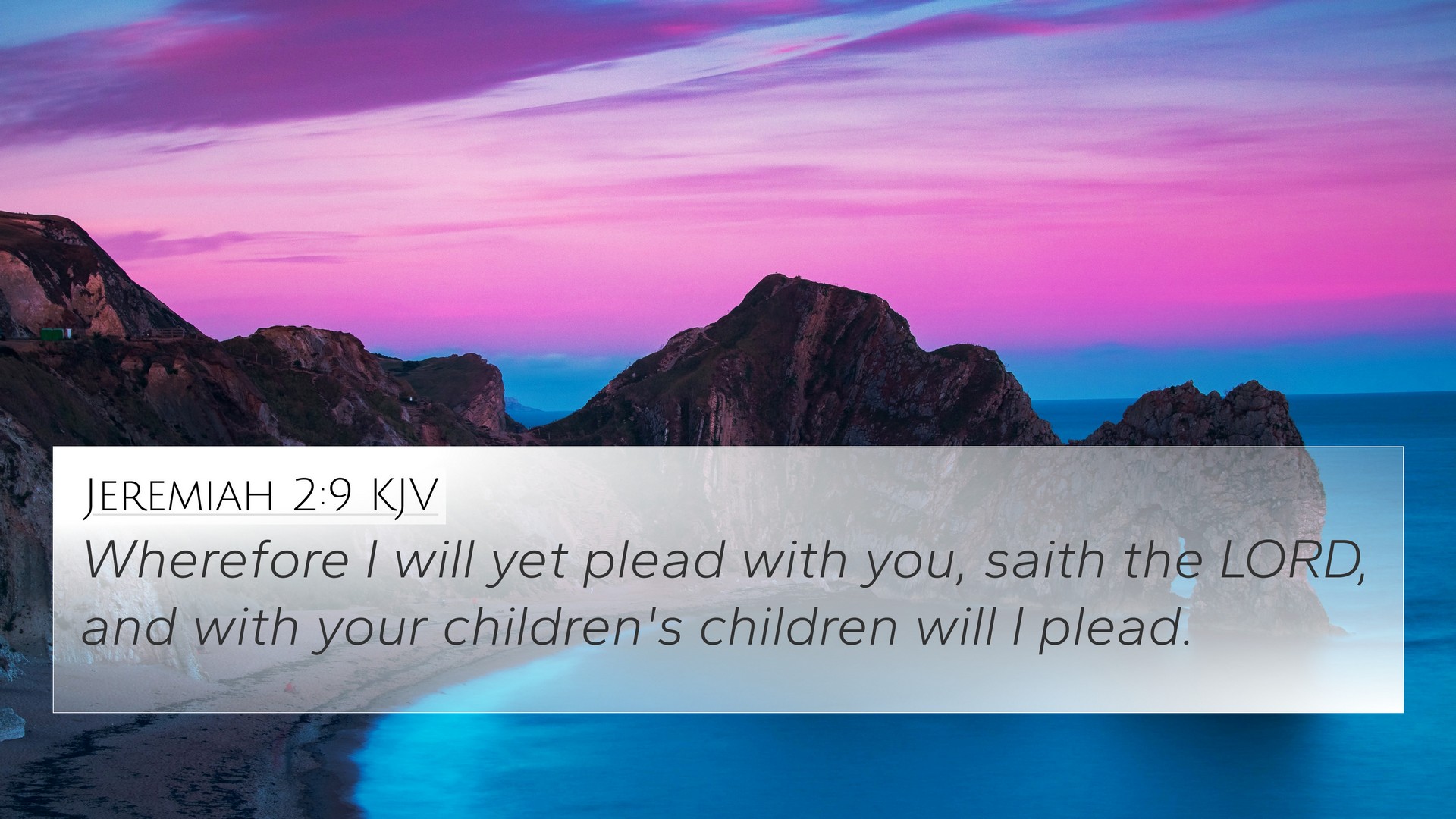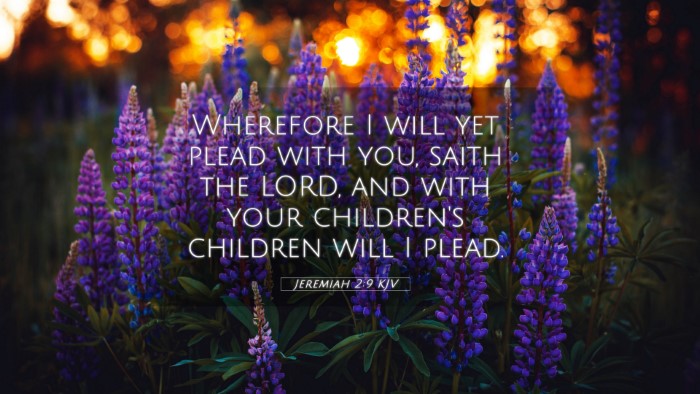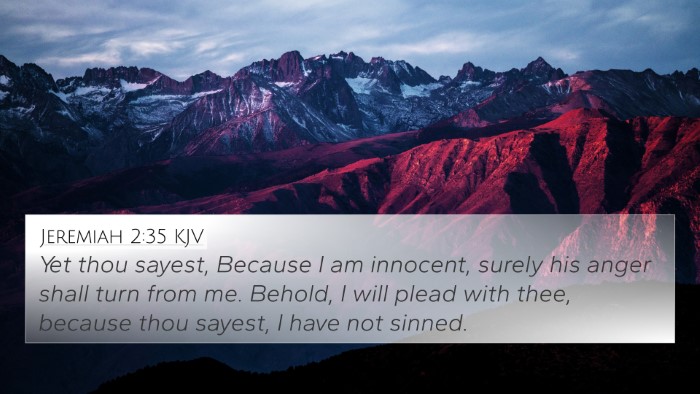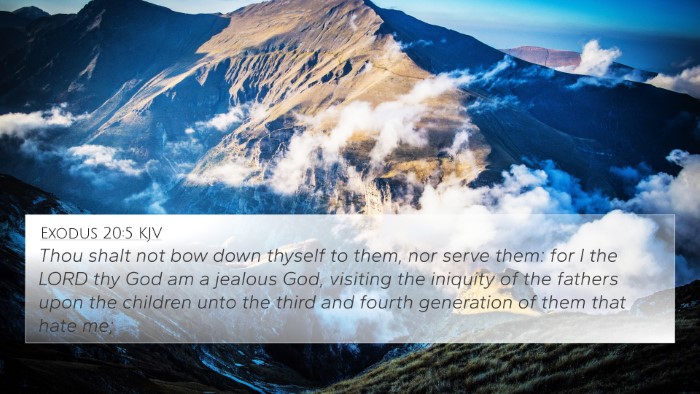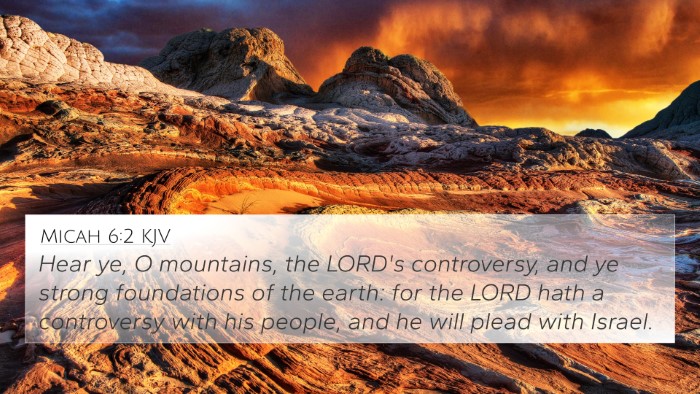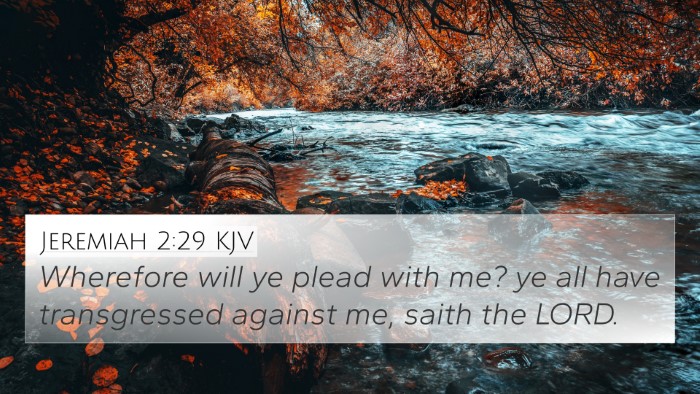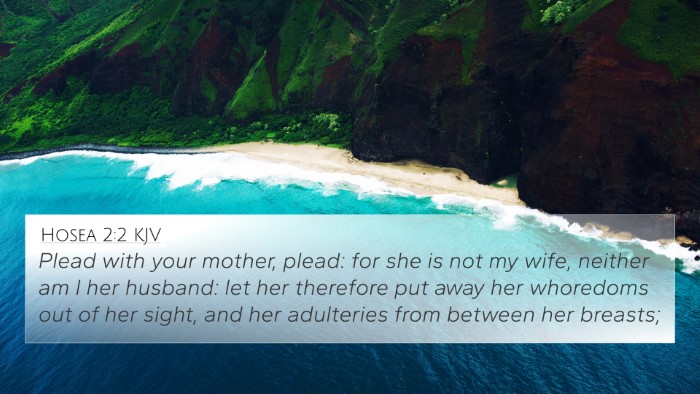Understanding Jeremiah 2:9
This commentary aims to provide a comprehensive understanding of Jeremiah 2:9 by synthesizing insights from several public domain commentaries, including those by Matthew Henry, Albert Barnes, and Adam Clarke. This verse reveals profound truths regarding the relationship between God and His people, emphasizing themes of unfaithfulness and the long-standing consequences of turning away from divine guidance.
Text of Jeremiah 2:9
"Wherefore I will yet plead with you, saith the Lord, and with your children's children will I plead."
Verse Meaning and Analysis
The verse is an invocation of God's willingness to engage in a righteous dialogue with His people about their spiritual condition. The term "plead" indicates not just a judicial or accusatory stance, but rather a loving appeal from God, urging repentance and renewal of their commitment.
Insights from Commentaries
- Matthew Henry: Henry emphasizes God's persistent nature in seeking relationship with His people. He interprets this verse as a call to recognition of Israel's unfaithfulness, noting that God is ready to plead even with future generations. This reflects the breadth of God's mercy and the importance of understanding the historical context of Israel's disobedience.
- Albert Barnes: Barnes discusses the significance of pleading with both the present and future generations, highlighting the continuity of divine expectations across time. This verse serves as a reminder that accountability extends not just to the current society but also to their descendants. It alerts us to the necessity of imparting true faith to subsequent generations.
- Adam Clarke: Clarke illustrates the theological implications of God’s plea. He suggests that the term “plead” signifies a reasoned appeal, indicating God's desire to persuade humanity towards righteousness rather than merely condemning them. Clarke sees this as an expression of divine patience and the need for Israel to consider their ways seriously.
Thematic Elements
Jeremiah 2:9 displays multiple themes, notably:
- God’s Call to Repentance: This verse can be seen as an urgent call for repentance, and a reminder of God’s commitment to restore the relationship.
- Historical Accountability: It underscores the responsibility of nations to remember their historical choices and the impact on future generations.
- Divine Mercy and Long-Suffering: This depiction of God as one who continually reaches out reflects His mercy, even amid Israel's waywardness.
Cross-References to Jeremiah 2:9
To deepen the understanding of Jeremiah 2:9, one can look at various cross-references throughout the Bible. Notable verses include:
- Isaiah 1:18: "Come now, and let us reason together, saith the Lord; though your sins be as scarlet, they shall be as white as snow."
- Ezekiel 18:30: "Therefore I will judge you, O house of Israel, every one according to his ways, saith the Lord God. Repent, and turn yourselves from all your offenses."
- Hosea 6:1: "Come, and let us return unto the Lord; for he hath torn, and he will heal us."
- Malachi 3:7: "Return unto me, and I will return unto you, saith the Lord of hosts."
- James 4:8: "Draw nigh to God, and he will draw nigh to you."
- Revelation 3:19: "As many as I love, I rebuke and chasten: be zealous therefore, and repent."
- Matthew 3:2: "And saying, Repent ye: for the kingdom of heaven is at hand."
Applications for Study and Reflection
The verse raises several practical applications for both individual and community life:
- Personal Reflection: Engage in self-examination regarding areas of spiritual neglect.
- Family Discussions: Discuss the importance of faith and obedience with family members.
- Community Engagement: Churches can use this verse to promote outreach efforts aimed at reconciliation and restoration within their communities.
Engaging with the Text
For those interested in a deeper understanding, consider utilizing tools for Bible cross-referencing, such as a Bible concordance or a Bible cross-reference guide. These tools can help identify connections between Bible verses, enhancing one’s study and engagement of the Scriptures.
Conclusion
Jeremiah 2:9 serves not only as a reflection of God’s dialogue with His ancient people but also as a timeless reminder of His call to return and repent. By utilizing various cross-references, believers can explore the continuity of God’s message throughout the Scriptures, enhancing their understanding and application in today's context.
